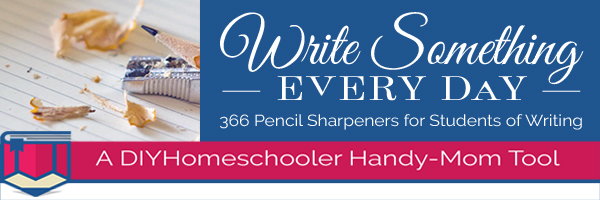
There are several reasons to have students write a review of a book they have read:
- To interact with the book and glean more from the read.
- To practice thinking critically before arriving at conclusions.
- To remember what has been read.
- To learn to summarize information.
- To better understand how good writers write (and bad writers don’t).
- To improve writing skills.
- To share a great read with others (or help readers avoid a not-so-great one).
What is a Book Review?
A book review is not the same thing as a book report. A book report simply summarizes what a book is about. A book review allows the writer to provide his own opinions, insights, and conclusions all without spoiling the plot for another reader.
A good book review typically includes the following elements:
- Introduction.
Basic information about the book: title, author, publisher, and date published. Also include what you hope to accomplish in the review and the criteria you will use to judge the book. - Brief summary of the book.
- What type of book is it (genre)?
- What the book is about (or a non-revealing synopsis of the plot)?
- Who is the target audience?
- What type of qualifications does the author have (if any)?
- What did the author try to accomplish in the work?
- How did the author try to accomplish this purpose?
- Evaluation.
Summary of the book’s strengths and weaknesses — not just the things you liked, but why the things you liked worked. Also include weak points in the book, and why they were weak. In both cases, include specific examples. - Conclusion.
- What are your personal thoughts on the book?
- How well did the author accomplish his purpose?
- Does anything set the book apart from other similar books?
- Provide your overall recommendation.
Suggestions
You’ll find helpful resources below.
- Find a few book reviews that you can use as examples. These are available in books about books or can easily be found in periodicals.
- Determine the book you will review. It is helpful if it is a book you have a strong opinion about, one way or the other. If you will be reading the book for the first time, be sure to make notes that cover some of the questions above. If you have already read the book, you’ll want to skim the book for a fresh take.
- Note the basic book information listed above.
- Decide what type of book you are reviewing: fiction or nonfiction. Determine the genre.
- Who is the book written to? (Age group, subject group, etc.)
- What do you know about the author? Is it the author’s first book? Does the author have particular qualifications that give him or her credibility when writing this type of book?
- What do you think the author is trying to accomplish? Sometimes we overdo this one. There are many fiction writers who assure readers they didn’t have a purpose when writing a particular book.
- Itemize the strengths of the book. Provide specific examples for each.
- Itemize the weaknesses of the book. Provide specific examples for each.
- Did the author accomplish his or her purpose? If so, how? If not, why not?
- What did the author do that you really appreciated? What would you have done differently?
- Are there other books you have read that are similar? If so, how does this book compare to them?
- Would you recommend that others read the book? Why or why not?
Additional Resources
6 Ways to Get the Most from Literature-Based Studies
You’ll find tips here for getting the most out of a read — a necessary step for a great book review!

10 Ways to Use Notebooking: #3 Literature
Book reviews can be a regular part of your child’s learning path. I still write reviews of the books I read, even when I’m the only one that will ever read them. Grab a notebook…and start a lifelong habit!
Book Review Writing: A Guide for Young Reviewers
10-page guide from Mensa.
Guidelines for Writing a Book Review
Tips at Rogers State University that are particularly helpful for a non-fiction review.
Printables & Notebooking Pages
Book Review Form
Simple form at ReadWriteThink.org to get students started.
Enjoy the complete series:











You must be logged in to post a comment.